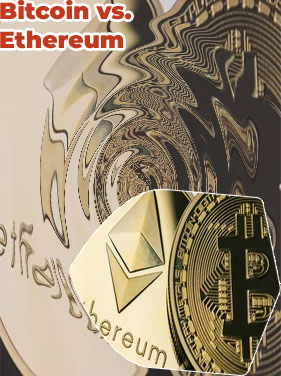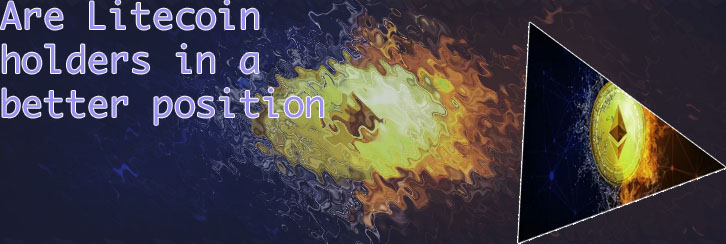Litecoin vs ethereum
When it comes to comparing Litecoin and Ethereum, many investors and cryptocurrency enthusiasts are eager to understand the differences between these two popular coins. To help shed light on this topic, we have curated a list of 4 articles that delve into the key distinctions between Litecoin and Ethereum, covering aspects such as technology, utility, and potential for growth. By exploring these articles, readers can gain a deeper understanding of the unique features and applications of each cryptocurrency, ultimately aiding them in making informed decisions about their investments in the digital asset space.
A Closer Look at Litecoin: How It Differs from Ethereum

Litecoin and Ethereum are both popular cryptocurrencies in the market today, but they differ in several key ways. One of the main differences lies in their underlying technology. While both Litecoin and Ethereum are based on blockchain technology, they have different consensus mechanisms. Litecoin uses a proof-of-work algorithm, similar to Bitcoin, which requires miners to solve complex mathematical problems to verify transactions and secure the network. On the other hand, Ethereum is in the process of transitioning to a proof-of-stake algorithm, which will eliminate the need for mining and reduce energy consumption.
Another key difference between Litecoin and Ethereum is their intended use case. Litecoin was created as a "silver" to Bitcoin's "gold," with a focus on fast and low-cost transactions. In contrast, Ethereum was designed as a platform for building smart contracts and decentralized applications (dApps). This difference in focus has led to Litecoin being seen as more of a digital currency for everyday transactions, while Ethereum is viewed as a versatile platform for developing a wide range of applications.
In conclusion, while both Litecoin and Ethereum are valuable cryptocurrencies with their own strengths and weaknesses, they serve different purposes in the market. Understanding these differences can help investors make informed decisions about which cryptocurrency to invest in or use for specific applications. By delving deeper into the specifics
Ethereum's Smart Contract Capabilities vs Litecoin's Transaction Speed
In the realm of cryptocurrency, two popular options are Ethereum and Litecoin, each offering unique benefits to users.
Ethereum is well-known for its smart contract capabilities, allowing users to create secure and automated agreements on the blockchain. These contracts can be used for a variety of purposes, from token sales to decentralized applications. This feature sets Ethereum apart as a versatile platform for developers looking to create innovative solutions.
On the other hand, Litecoin boasts impressive transaction speeds, with block times of just 2.5 minutes compared to Ethereum's 15 seconds. This means that Litecoin transactions are processed much faster, making it a more efficient option for users who prioritize speed and scalability.
Here are a few key points to consider when comparing Ethereum's smart contract capabilities to Litecoin's transaction speed:
- Smart Contract Functionality: Ethereum's robust smart contract capabilities allow for complex and customizable agreements to be executed on the blockchain.
- Transaction Speed: Litecoin's fast transaction speeds make it a practical choice for users who require quick and efficient cryptocurrency transactions.
- Developer Community: Ethereum has a large and active developer community, leading to continuous innovation and improvements in smart contract technology.
- Adoption and Integration: Litecoin has gained popularity as a reliable and fast cryptocurrency, leading to increased adoption and integration by merchants
Litecoin vs Ethereum: A Comprehensive Comparison of Mining Algorithms
Litecoin and Ethereum are two popular cryptocurrencies that utilize different mining algorithms to validate transactions and secure their respective networks. While Litecoin utilizes the Scrypt algorithm, Ethereum uses the Ethash algorithm. These algorithms impact the efficiency, speed, and overall profitability of mining these cryptocurrencies.
Litecoin's Scrypt algorithm is known for its memory-intensive nature, making it more ASIC-resistant and accessible to individual miners using GPUs. This allows for a more decentralized mining ecosystem compared to Ethereum, which has transitioned from the ASIC-resistant Ethash algorithm to the ASIC-friendly ProgPoW and now to the proof-of-stake consensus mechanism.
On the other hand, Ethereum's Ethash algorithm prioritizes GPU miners, enabling a more efficient validation process and network security. However, the upcoming transition to proof-of-stake is expected to revolutionize Ethereum mining, potentially reducing energy consumption and increasing scalability.
In conclusion, both Litecoin and Ethereum offer unique mining experiences due to their distinctive algorithms. While Litecoin remains ASIC-resistant and GPU-friendly with its Scrypt algorithm, Ethereum's Ethash algorithm has paved the way for innovation in mining technology. As the crypto industry continues to evolve, understanding the differences between these mining algorithms is crucial for miners and investors alike.
Potential for Decentralized Finance: Ethereum's Dominance vs Litecoin's Growing Adoption
Today, we are discussing the potential for decentralized finance and comparing Ethereum's dominance with Litecoin's growing adoption. Joining us in this discussion is Emma, a cryptocurrency enthusiast and analyst.
Emma, what are your thoughts on Ethereum's dominance in the DeFi space compared to Litecoin's growing adoption?
Well, it's clear that Ethereum has established itself as a leader in the decentralized finance ecosystem. Its robust smart contract capabilities and established network make it a go-to platform for DeFi applications. However, Litecoin has been making strides in recent years with its growing adoption among users and developers. Its lower transaction fees and faster block times make it an attractive option for those looking to participate in decentralized finance.
Do you think Litecoin has the potential to challenge Ethereum's dominance in the DeFi space?
While Ethereum currently holds a significant market share in DeFi, Litecoin's growing adoption could position it as a strong competitor in the future. Its scalability and lower fees give it an edge in certain aspects, making it a viable option for users seeking alternatives to Ethereum. As the DeFi space continues to evolve, it will be interesting to see how Litecoin's presence grows.













